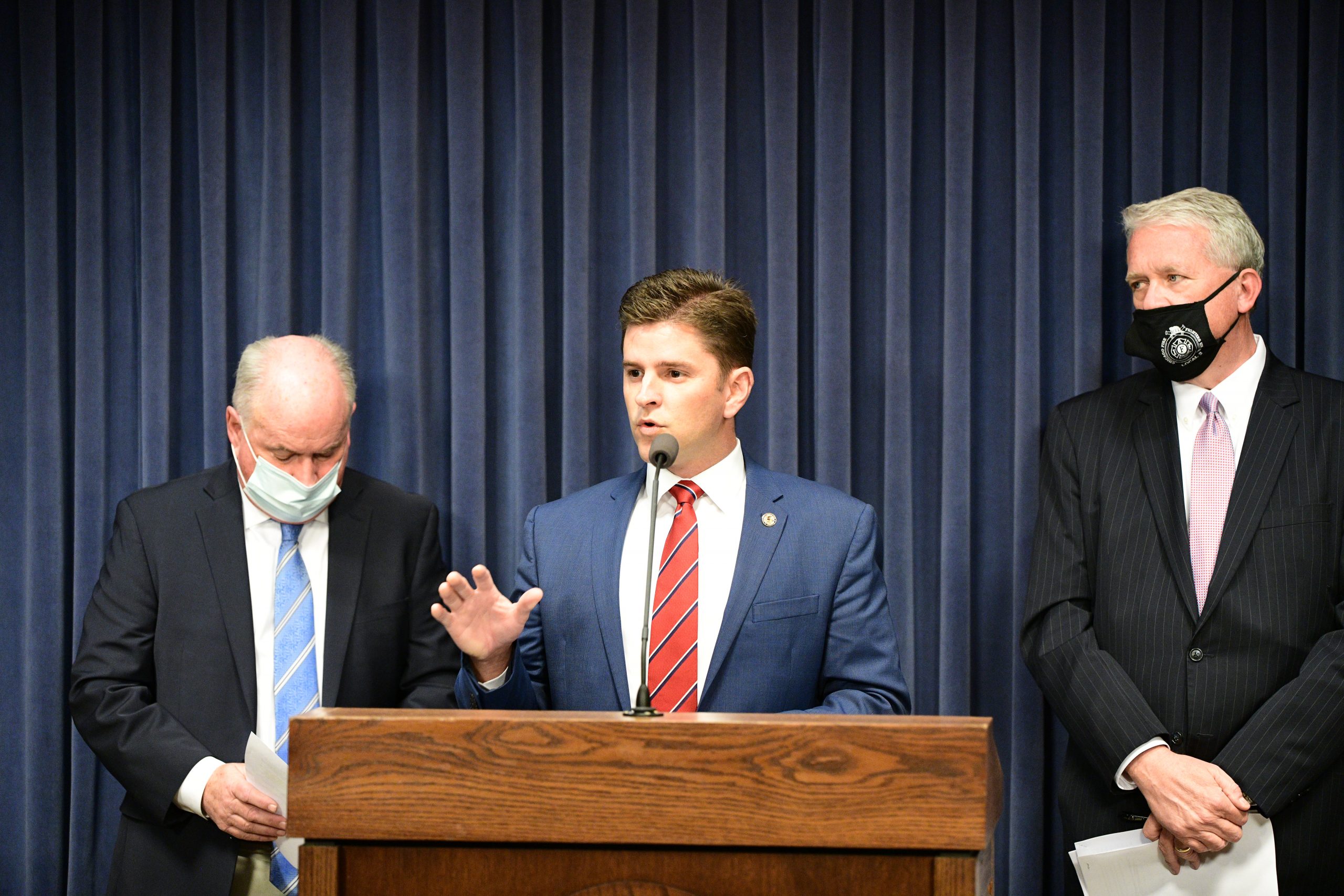Despite the past documented evidence of Illinois’ Democrat leaders, including Governor JB Pritzker and new House Speaker Chris Welch, stating support for a fair, transparent and non-partisan redistricting process, they continue to press on with the current partisan process. Today, Illinois House Republican Leader Jim Durkin (R-Western Springs), Assistant Minority Leader Tim Butler (R-Springfield) and Assistant Minority Leader Ryan Spain (R-Peoria) again laid bare the hollowness of Democrat leaders’ past promises and pointed to how it further exacerbates the cloud of corruption and public mistrust in the state.
“Democrats have claimed to be in support of fair maps for years, but when it comes to real action they always go back on their word,” Durkin said. “Every opportunity to implement fair maps has been met with rejection by the Democrats. Their record speaks for itself.”
In 2016, then State Representative Chris Welch, co-sponsored HJRCA 58 to create an independent redistricting commission, which later passed the House with 105 YES votes. He even published an op-ed supporting the measure and stated, “The redistricting, or ‘remap,’ of state legislative districts that’s mandated by law to occur after the U.S. Census every 10 years is very important. Unfortunately, the process has often been criticized as too political and one where voters are left without a voice.
“To address these issues, I’m supporting House Joint Resolution Constitutional Amendment 58 (HJRCA 58), which is a comprehensive, bipartisan measure that will put an independent commission in charge of drawing state legislative district boundaries and protect minority representation.”
Before the current partisan redistricting process began this spring, Republicans filed the People’s Independent Maps Act, Senate Bill 1325, using identical language from SJRCA 4, a constitutional amendment for an independent redistricting commission introduced by Sen. Julie Morrison (D-Deerfield) in 2019. That resolution garnered 37 co-sponsors in the Senate including 18 Democrats and was nearly identical to the 2016 HJRCA 58 that Welch co-sponsored.
In addition to Welch, Pritzker is on the record multiple times advocating against partisan redistricting and for fair maps.
“Governor Pritzker, who has previously expressed strong support of a citizen-led redistricting commission, continues to be silent about the current partisan process being carried out,” said Butler. “Supporting transparency and involving citizens in actually drawing maps sounds good to many politicians on the campaign trail, but unfortunately the actions this year speak much louder than words to the Democrats in Illinois.”
Although more than 30 redistricting hearings have taken place this spring, Assistant Minority Leader Spain pointed to the hypocrisy of using the far less accurate American Community Survey (ACS) population data during the, so far, partisan process.
“We have a choice here,” said Spain “We have a choice to not just hear, but actually listen to, the testimony being provided to us at each of these hearings. If we want to do right by advocates in protecting communities of interest, about adhering to the State and Federal Voting Rights Acts, we must allow the extra time to get the US Census data and not waste the monies we spent in pushing high census participation in Illinois by proceeding with flawed data.”
In 2018, then-candidate for governor J.B. Pritzker was asked this redistricting question by Capitol Fax’s Rich Miller: “This requires only a simple yes or no response: Will you pledge as governor to veto any state legislative redistricting map proposal that is in any way drafted or created by legislators, political party leaders and/or their staffs or allies? The exception, of course, would be the final official draft by LRB.”
Pritzker’s response was: “Yes, I will pledge to veto. We should amend the constitution to create an independent commission to draw legislative maps, but in the meantime, I would urge Democrats and Republicans to agree to an independent commission to handle creating a new legislative map. That designated body should reflect the gender, racial, and geographic diversity of the state and look to preserve the Voting Rights Act decisions to ensure racial and language minorities are fully represented in the electoral process.”
In his 2018 gubernatorial candidate questionnaire in the Northwest Herald, then-candidate Pritzker stated, “…and I support ending the gerrymandering of districts to encourage more competitive elections.”
The Governor again reiterated this position after his 2020 State of the State Address by promising to “veto any unfair map that gets presented to me.”
